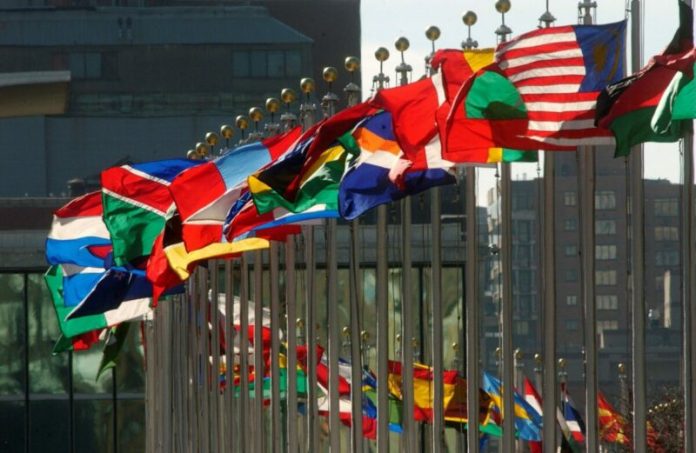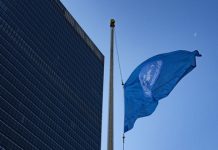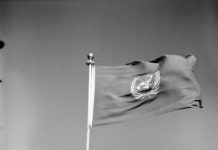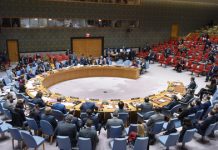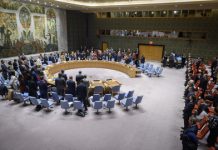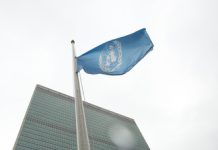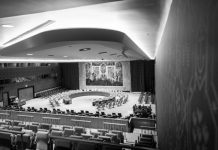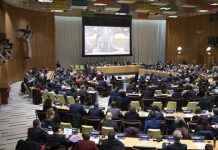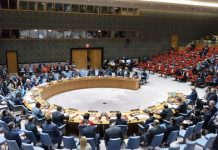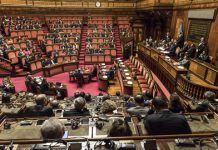When they eventually did, her mother said to her, “If you are going to die anyway, better to be shot crossing the two-mile border than starve here.”
Shortly thereafter they fled from the Democratic People’s Republic of Korea, more commonly known as North Korea.
Ms. Kim gave testimony to the UN General Assembly on Tuesday during a meeting convened to discuss human rights abuses and violations in DPRK: “The human rights situation in the country has been of grave concern for years, and, in many respects, is deteriorating,” Ilze Brands Kehris, Assistant Secretary-General for Human Rights, told delegates.
The representative from DPRK denounced the meeting, insisting that the information presented was a “fabrication.”
Wide-ranging abuses
North Koreans have been forced to exist in “absolute isolation” for many years, according to UN Special Rapporteur on human rights for the country, Elizabeth Salmón.
The independent UN Human Rights Council-appointed expert said this isolation has exacerbated the impact of multiple rights violations which include forced labour systems, infringement on freedom of expression and movement, torture and the forced disappearance of hundreds of thousands of civilians.
The DPRK has also denied entry to humanitarian aid despite UN data which suggests that it is desperately needed – 11.8 million people, or 45 per cent of the population, are estimated to be undernourished and more than half the population lacks adequate sanitation.
Instead of social services, Pyongyang has prioritized militarisation, exacerbating human rights violations, said the Special Rapporteur.
“As the DPRK expands its extreme militarization policies, it exacerbates the extensive reliance on forced labour and quota systems, showing how peace, security and human rights are strongly interrelated,” Ms. Salmón said.
‘Please do not turn away’
Ms. Kim pleaded with delegates and UN officials to take action.
“Please do not turn away from the innocent lives being lost in North Korea and elsewhere. Silence is complicity,” she said.
Ms. Kehris noted that the international community has taken many steps in past decades to address ongoing human rights abuses in the DPRK but that these actions have failed the change the status quo.
“Given the gravity and scale of the violations, and inability or unwillingness of the [DPRK] to pursue accountability, international accountability options must be considered, including referral of the situation to the International Criminal Court,” she said.
Despite such challenges, the senior official did note that Pyongyang has shown “increased willingness” to engage with her office, OHCHR.
In September, OHCHR is due to present a report to the Human Rights Council which will make new proposals on improving the situation.
In her remarks, Ms. Salmón insisted that long-term accountability for the DPRK must go hand in hand with peace.
“Peace is a foundation for human rights. Human rights cannot thrive without peace. In this rapidly developing political climate, we must act together to prevent geopolitical tensions from destabilizing the Korean Peninsula,” she said.
Hope for the future
It has been more than 25 years since Ms. Kim fled: “One day, I hope to return to North Korea, hand in hand with my daughters, to show them a North Korea not defined by control and fear but filled with freedom and hope,” she said.
Source of original article: United Nations (news.un.org). Photo credit: UN. The content of this article does not necessarily reflect the views or opinion of Global Diaspora News (www.globaldiasporanews.net).
To submit your press release: (https://www.globaldiasporanews.com/pr).
To advertise on Global Diaspora News: (www.globaldiasporanews.com/ads).
Sign up to Global Diaspora News newsletter (https://www.globaldiasporanews.com/newsletter/) to start receiving updates and opportunities directly in your email inbox for free.


